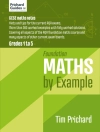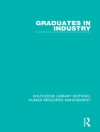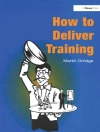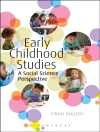This brand new textbook brings you up to date with all the latest developments and keys issues from around the globe, and helps you understand how these changes are impacting on practice in early years and primary classrooms.
Key issues in contemporary childhood are explored through three sections on The Child, The Family, and Emerging Trends, with topics including:
- the ‘Digital Child’ and the rise of new technologies
- children’s security and the impact of poverty, austerity and conflict
- children’s happiness, mental-health and wellbeing
- the changing nature of families including LGBT homes, refugees, and asylum seekers
- the challenges of multi-agency working
The pace of change in early childhood can be daunting, but this book helps students and practitioners understand the huge variety of issues affecting children in the UK and all over the world.
Sean Mac Blain will be discussing key ideas from Contemporary Childhood in the SAGE Early Years Masterclass, a free professional development experience hosted by Kathy Brodie.
Inhoudsopgave
SECTION 1 THE CHILD
1 The Changing Nature of Childhood
Shifting landscapes: children’s security
Multiculturalism
Inclusion and children with additional needs
Austerity and poverty
Children as carers
State of play in the UK
Emerging curricula and proposed initiatives
2 The Child’s Perspective
Current views on children’s perspective
Childhood studies and children’s perspectives
United Nations Convention on the Rights of the Child and children’s perspectives
Challenges and tensions in listening to young children’s perspectives
Methods for seeking children’s perspectives in research
Innovative methods for eliciting the views of young children
Children’s involvement in the research process
3 Social and Emotional Functioning in the Learning Environment
Learning, happiness and well-being
Attachment and the learning environment
Loss in childhood: its impact on learning
Fear and love in the lives of children
Supporting children’s social and emotional functioning outside of the home
4 Creating Optimum Learning Environments for the Child
Today’s challenges
Identification and assessment: reflections on practice
Ethical issues in the identification and assessment of children
Low achievement and underachievement
Children whose first language is not English
Monitoring and evaluating practice
SECTION 2 THE CHILD AND THE FAMILY
5 The Changing Nature of Families
Divorce, separation and step-families
The importance of fathers in families
Grandparents and families
Working with refugee and asylum-seeking families
Working with lesbian, gay, bisexual and transgender families
6 The Parent’s Voice
Listening to parents
Working with parents
Parents’ working patterns
7 Multi Professional Perspectives
Evolving perspectives
Safeguarding
Challenges of multi-agency working
Professionals and parents: working together
Recent initiatives
SECTION 3 MODERN AND EMERGING CHILDHOODS
8 Policy, Discourse and Identity
Policy and practice
Contemporary political ideology and philosophy
Regulation, control and accountability
Professionalism and professional identity
9 The Digital Child
What is a ‘digital child’?
Digital media
The affordances of digital media
Starting where children are: the importance of children’s learning experiences at home
Children’s digital lives in the new millennium
E-safety for children in a digital world
10 International Perspectives
International variations in practice
Children and conflict
Growth of technology
Gender
Provision for children throughout the world
Economic costs of childhood
The readying culture
11 Contemporary Issues in a Global Society
Poverty and life chances
Obesity
Sexualisation of children
Social fears
Mental health
Media and materialism
The emergence of neuroscience
Reflections on professionalism
Child-centredness in a changing world
Over de auteur
Jill Dunn is a senior lecturer in Stranmillis University College, Belfast. She was a primary school teacher working in Foundation Stage and Key Stage One classrooms before moving into teacher education. Jill teaches widely across the BEd and PGCE Early Years programmes. However, her main interests lie in the teaching of literacy in the early years. Jill has just completed her Ed D in 2013 and her dissertation focused on children’s views on using popular culture to teach writing. She has been involved in a number of funded research projects on literacy and is currently involved in an evaluation of i Pads in the Early Years. Jill lives in Lisburn, Northern Ireland with her husband Ian and two daughters Holly and Katy.












